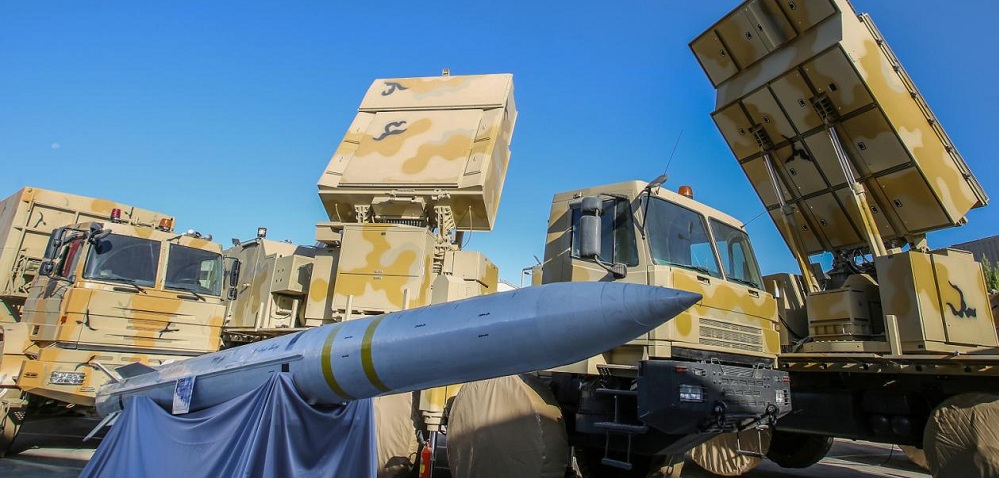Alwaght- After assassination of General Qassem Soleimani, the invincible legend of the Axis of Resistance in the fight against terrorism and the national hero of the Iranians in protection of security across the country while the region is living stormy conditions amid wars and crises, the question is that how will Iran respond to the American state terrorism?
Since Friday, when the US launched an air attack that killed the commander of IRGC’s Quds Force, the Iranian officials and even the leaders of the regional resistant groups from Lebanon and Iraq to Yemen and Palestine vowed to retaliate the assassination of the top general. Shortly after Iran’s Leader Sayyad Ali Khamenei threatened the US with “tough revenge”, National Security Council in a threatening statement called the US move a “strategic mistake” drawing “painful retaliation in the right time and place.”
A set of options is available to Iran to deal blows to the American interests in retaliation.
Quick response and military confrontation
The US has 21 military bases in such regional states as Qatar, Saudi Arabia, Kuwait, the UAE, and Bahrain, collectively making up the biggest network of logistical support to the American military in West Asia. The Persian Gulf and Sea of Oman host the US warships and also aircraft carriers that are all easy targets to the massive Iranian missile power. Iran can easily deal a painful blow to the American military strength in the region via missile strikes. Naturally, such an action will trigger a possible full-scale military confrontation between the two sides. Even though Iran reads the assassination of General Soleimani as declaration of war, it does not seem it will take emotional retaliatory action without precisely assessing all options. Tehran will think about two guarantees before it takes action against the American forces: The success of actions and management and containment of the consequences.
Putting American officials within fire range
Following the assassination of the top Iranian general and the Iraqi Popular Mobilization Forces’ commander, the US Department of State called on all of the Americans to quickly leave Iraq. The workers of American oil companies in Iraq have left the Arab country and the US embassy is closed now. Washington has understood that Iraq is not safe for any American. The Iraqi people’s fury with the US crimes and intervention in their country has boiled over. Even before the recent attack, the American officials paid visits to Iraq and even Afghanistan secretly, mainly met with the countries’ officials only in the military bases operated by their troops.
The situation has now even grown worse for the presence of the American officials in Iraq. Now revenge against the military and political American officials is a legitimate right as they embarked on state terrorism. Stephan Walt, an American professor of international affairs, in a Twitter post likened the US state terrorism to possible assassination of the chief of the US general staff or the Secretary of State wondering what response Washington could give if its officials were victims of an attack like the one ordered by Trump. As Iran insists on retaliation against the US and is a drone power in the region, drone strikes are one option available to Tehran.
Indirect action using the Axis of Resistance’s capabilities
Another choice available to Tehran is an indirect response via its overt and covert capacities within a massive and twisting network of allies in the region and across the world. The attacks could be carried out against the US interests in a way not triggering a military confrontation between the two countries.
The US struck the PMF forces making the Iraqi people and officials extremely furious. So, the most possible location of the anti-American attacks is Iraq. The American awareness of this threat made Pentagon deploy some of its special and rapid action forces from Kuwait and other regional countries to cover US political and military interests in the Iraq capital Baghdad. This action gives rise to a question: Will the target be safer by this move? Or will it just become even more vulnerable to the Iranian strikes?
Iraq is not the only location of a threat to the Americans, however. Iran has strategic allies in Syria, Lebanon, Yemen, and Afghanistan, all infuriated by the US measures.
Mixed response to the US and its allies
Beside the above-mentioned options, there is an even likelier and multi-faceted option, more going with the current regional conditions and the future US-Resistance camp’s future confrontation. Iran does not want to miss the chance to make the most out of the current political atmosphere in the region and even the world against the US terrorist and destabilizing actions. Since the first day of the attack, except for a small number of mainly dependent countries, the whole independent world blasted the Trump administration or blamed it for the crime, calling the move destabilizing.
Iran’s foreign ministry very fast started its diplomatic movement to take the case to the international organizations calling the American officials the violators of international law. In addition to creating an anti-American force internationally, Tehran asked for the Iraqi parliament’s bill to expel the American forces from Iraq. The recent American terrorist attacks flared up stronger anti-American sentiments across Iraq. On Sunday, Iraq’s parliament voted to expel American forces from the country.
Beside these, it should not be forgotten that General Soleimani has a right on the shoulder of all of the groups aligned to the Iran-led Axis of Resistance. These groups themselves find the US the root cause of their problems and challenges. Various resistant groups have expressed their readiness to take retaliatory actions against the US. Iraq’s Kataib Hezbollah began to enlist volunteers for “istishhadi operations” against the American forces that would mainly include retaliatory suicide attacks.



























